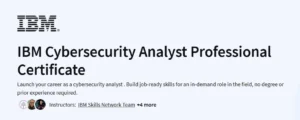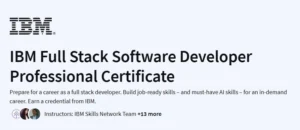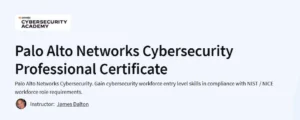What will you learn in Node JS Course with Certification Course
Build scalable server-side applications with Node.js and Express.js
Work with asynchronous patterns: callbacks, Promises, and
async/awaitInteract with databases (MongoDB, MySQL) using ORMs and native drivers
Implement RESTful APIs, WebSocket real-time communication, and microservices
Secure applications with JWT authentication, OAuth integration, and input validation
Debug, test (Mocha/Chai), and deploy Node.js apps using Docker, PM2, and CI/CD pipelines
Program Overview
Module 1: Node.js Fundamentals & Environment Setup
⏳ 1 week
Topics: Node.js architecture, NPM/Yarn package management, ES6+ syntax
Hands-on: Initialize a project, install dependencies, and build a “Hello World” HTTP server
Module 2: Asynchronous JavaScript Patterns
⏳ 1 week
Topics: Callbacks vs. Promises, error handling,
async/await, event loop internalsHands-on: Refactor callback-based code to Promises and
async/await
Module 3: Building RESTful APIs with Express
⏳ 1 week
Topics: Routing, middleware, error-handling, request validation (Joi)
Hands-on: Create CRUD endpoints for a task management API
Module 4: Database Integration
⏳ 1 week
Topics: MongoDB with Mongoose, MySQL with Sequelize, schema design, migrations
Hands-on: Connect your API to both MongoDB and MySQL backends, implement data models
Module 5: Real-Time Communication & Microservices
⏳ 1 week
Topics:
socket.iofor WebSockets, service decomposition, messaging patternsHands-on: Add a chat feature to your app and split functionality into two microservices
Module 6: Authentication & Security
⏳ 1 week
Topics: JWT, OAuth2 flows (Google/Facebook social login), Helmet, rate limiting, CORS
Hands-on: Secure API routes, issue and verify tokens, implement role-based access
Module 7: Testing & Debugging
⏳ 1 week
Topics: Unit testing with Mocha/Chai, integration tests, debugging with Chrome DevTools
Hands-on: Write tests for API endpoints and debug a memory-leak scenario
Module 8: Deployment & DevOps
⏳ 1 week
Topics: Dockerfile creation, PM2 process management, CI/CD with Jenkins/GitHub Actions
Hands-on: Containerize your microservices, configure a CI pipeline, and deploy to AWS
Get certificate
Job Outlook
Node.js developers are in high demand for backend, full-stack, and microservices roles
Common titles: Backend Engineer, Full-Stack JavaScript Developer, API Specialist, DevOps Engineer
Salaries range from $90,000 to $140,000+ depending on experience and location
Expertise in Node.js and its ecosystem accelerates career growth in tech startups and large enterprises alike
Specification: Node JS Course with Certification
|
FAQs
- Basic familiarity with JavaScript is helpful but not strictly required.
- The course introduces Node.js concepts from scratch, including server-side programming basics.
- Step-by-step examples guide learners from creating simple scripts to full server applications.
- Prior knowledge of HTML/CSS or frontend development can speed up understanding.
- By the end, learners can build and run Node.js applications independently.
- Yes, the course covers creating server-side applications and APIs using Node.js.
- Learners practice handling HTTP requests, routing, and response management.
- Introduction to Express.js is included for building scalable server applications.
- Skills include connecting servers to databases for dynamic data handling.
- Real-world exercises ensure learners can create functional backend applications.
- Yes, the course introduces database integration concepts.
- Learners practice connecting Node.js applications to databases like MongoDB.
- CRUD operations (Create, Read, Update, Delete) are covered for managing data.
- Understanding asynchronous programming ensures efficient database handling.
- More advanced database design or optimization may require additional learning.
- The course covers basic deployment concepts for hosting Node.js applications.
- Learners understand server setup, environment configuration, and running applications in production.
- Guidance includes using cloud services or local servers for deployment practice.
- Advanced deployment topics, like load balancing or containerization, may require further study.
- Skills prepare learners to deploy small to medium Node.js projects effectively.
- Yes, API development is a key part of the course.
- Learners build RESTful APIs using Node.js and Express.js.
- Techniques include handling requests, responses, and connecting APIs to databases.
- Skills enable backend integration with web apps, mobile apps, or other services.
- Additional advanced API concepts like authentication or scaling may require further learning.





